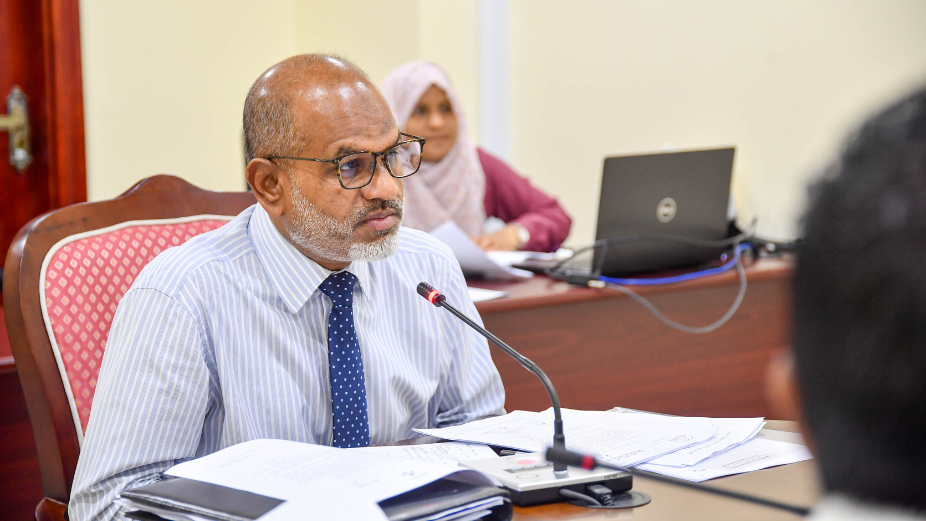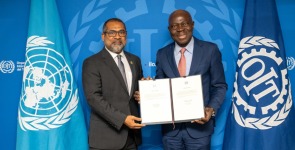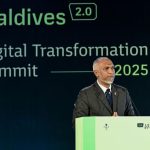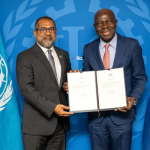
Deputy Speaker Ahmed Nazim has announced plans to introduce a bill aimed at regulating internet usage and media operations in the Maldives. The Dhiggaru MP, representing the ruling People’s National Congress (PNC), stated that the proposed legislation is being developed independently and is not part of the government’s legislative agenda.
According to an interview given to SSTV, the bill is modelled on Malaysia’s multi-media council framework. It proposes merging the Maldives Media Council and the Broadcasting Commission into a single regulatory body.
The announcement has reignited debates over media freedom in the Maldives, with concerns about potential government overreach.
Government’s Position and Public Concerns
Speculation has grown that the government is planning to regulate social media platforms, although these claims have been denied. Presidential spokesperson Heena Waleed reiterated the administration’s commitment to media deregulation, asserting on X, “The government is not making any effort to introduce a bill to regulate journalism and the internet. Such a bill is not included in the government’s legislative agenda.”
However, this is not the first attempt by PNC MPs to propose media regulation. Earlier, MP Abdul Hannan Abubakar introduced a bill to establish a media regulatory commission under government control. The bill faced significant opposition from journalists and media organisations and was withdrawn before a vote.
Rumours of potential bans on platforms like TikTok, Instagram, Snapchat, and X also emerged, further fuelling concerns. While these rumours have been dismissed by government officials, the discourse has raised questions about the balance between regulation and freedom.
Risks of Overregulation
The proposed bill has sparked fears of government overreach, with many warning that such legislation could undermine press freedom and stifle online discourse. International experience shows that broad regulatory powers over media and the internet often lead to unintended consequences, such as limiting critical reporting and discouraging free expression.
While Nazim’s proposal focuses on combating misinformation and offensive content, the lack of clarity around enforcement mechanisms has raised alarms. Regulation that targets specific platforms or consolidates oversight into a single body could inadvertently open doors for abuse, leading to restrictions on dissent and public debate.
The debate highlights the delicate balance between ensuring accountability in media operations and safeguarding freedom of expression. While misinformation and harmful content are legitimate concerns, any attempt to regulate media and the internet must be transparent, inclusive, and grounded in democratic principles.
Nazim’s Clarification
In response to concerns, Nazim has refuted claims that he is against media freedom, stating that his remarks on media regulation were misrepresented by some outlets.
Nazim clarified in a statement that his goal is to reform existing institutions rather than interfere with press freedom. “There are already two institutions responsible for regulating the media in the Maldives,” he noted. “Even the media itself acknowledges that these institutions are not functioning properly. They duplicate state resources without delivering effective results.”
According to Nazim, these two institutions collectively received a budget allocation of MVR 18 million last year, and his proposal seeks to address inefficiencies in media oversight rather than curtail journalistic freedom.
He also highlighted the growing influence of social media platforms and the need for a legal framework to address issues such as misinformation and character defamation. Nazim reassured the public that his bill does not aim to block platforms or suppress free expression, stating, “When using social media, people must be aware of the impact their words can have on the dignity and reputation of others. There must be a legal avenue for justice when individuals are harmed by false information.”
Nazim pointed to international examples, such as Ireland’s Online Safety and Media Regulation Act (2022), as a model for responsible digital governance. He also noted the growing role of artificial intelligence in digital media, stressing the need for laws to protect public interests.
Presidential Spokesperson Heena Waleed reaffirmed the government’s commitment to media freedom, reiterating that the government has no plans to regulate journalism or the internet. “The government is committed to deregulating the media and promoting a self-regulatory system,” Heena wrote on X.












